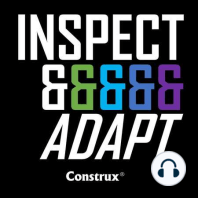40 min listen

#23 Exploring Metrics: Using Landing Zones to Define and Guide Success
#23 Exploring Metrics: Using Landing Zones to Define and Guide Success
ratings:
Length:
53 minutes
Released:
Aug 25, 2020
Format:
Podcast episode
Description
It's a sad truth that many software teams are working with no explicit definition of success.Join Construx Senior Fellow Erik Simmons and Mark Griffin to learn about the landing zone, a table that you can use to define success in a quantified, explicit way. Erik played a role in the development of the landing zone method during his time at Intel, so you're learning about it from one of its earliest proponents.In addition to learning how to build landing zones and when to use them, you'll learn what makes a good success definition, the benefits of using landing zones (including creating accountability and transparency and enabling distributed decision making), tips for creating your first landing zones, who should be involved when creating them, how you can use landing zones with OKRs (Objectives and Key Results), and much more.Learn more about Landing Zones from Erik's on-demand webinar: https://www.construx.com/webinar-value-stream-mapping-for-devops/
Released:
Aug 25, 2020
Format:
Podcast episode
Titles in the series (48)
#5 Design Patterns: What's Their Connection to Fundamental Design Principles? by Inspect and Adapt